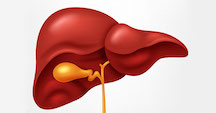The liver is a fascinating organ. Not only does it manufacture proteins, glucose, and blood clotting factors; stores energy as glycogen; makes bile for digestion, it also gets rid of metabolic waste, old blood cells, toxins, and drugs. Additionally, if given the opportunity and time, liver tissue can regenerate, making it a unique visceral organ. It behooves us to take care of this amazing organ.
A few simple techniques help us honor and protect the liver.
- Avoid or minimize alcohol. Alcohol is metabolized into aldehydes which cause cellular toxicity. Drunkenness sensation is caused by the effects of aldehyde toxicity.
- Reduce or eliminate sugar. Sugar is very inflammatory and may increase fat deposition in the liver leading to fatty liver disease (NASH), strains pancreatic insulin production, and causes cortisol (a stress hormone) disruption.
- Get adequate sleep to support your regenerative ability.
- Consider the following nutrients to protect the liver:
- N-acetyl cysteine (NAC). NAC is the only nutraceutical that is approved by the FDA for liver failure treatment. NAC helps build glutathione, our biggest antioxidant. It is also great for thinning mucous if you have sinus or lung congestion.
- Silymarin derived from Milk Thistle seeds is highly beneficial for liver health and supports detoxification systems. Remember to grind the seeds before use.
- Curcumin. This compound found in turmeric has been shown to be highly beneficial for the liver.
- L-carnitine. This molecule helps to transport fat into the mitochondria, the energy producing center of cells.
- SAM-e. This methylation support nutrient has been found to support the liver detoxification.
- Licorice. It is best in the deglycyrrhizinated form to reduce hypertension effects. Licorice also fights viruses and supports adrenal health.
- Vitamin C. This vitamin needs to be ingested daily as humans are one a few mammals that don’t manufacture it on our own.
- Avoid known toxins.
- Eat organic foods as much as possible. See HERE for the annual dirty dozen list from EWG to determine what foods to prioritize as organic.
- If smoking, consider a quit smoking program. Even organic tobacco contains toxic metals such as arsenic, cadmium, and lead. If vaping, consider quitting. Dr. Rodgers offers an acupuncture protocol to help wean off addictive substances.
- Avoid synthetic fragrances as they may contain neurotoxins and endocrine disrupters. Manufacturer labels do not disclose everything that in these complex products. Avoid fragrance in lotions, shampoo, laundry cleaning products, scented plugins, scented candles, etc.
- If you are doing a project that involves solvents, metals or other toxins, use the personal protection suggested on labels (e.g. nitrile gloves, a respirator) even if you can’t see or smell the toxins.
- If you work in an environment with hazardous fumes or materials, ensure that your employer is offering personal protection devices or provides industrial grade air purification.
